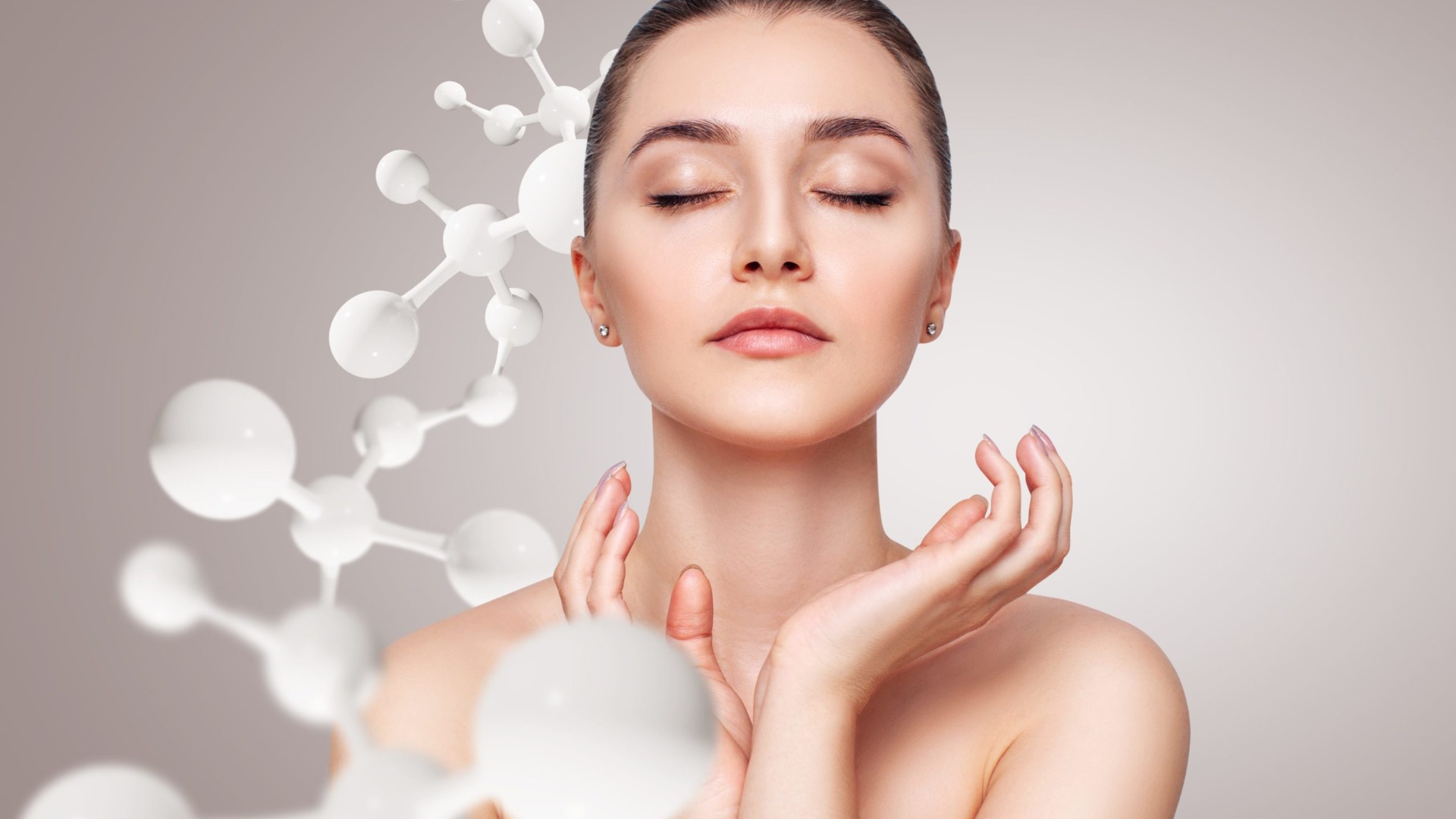dermal fillers, whose purpose is to add volume to a certain place, like the cheeks or lips, skin boosters take care of the quality of your skin and address issues related to dehydration, fine lines, or skin laxity. The growing popularity of these treatments is partly because they can address an array of skin concerns on various skin types, but one question still begs to be asked: Are skin boosters suitable for all skin types?
What Are Skin Boosters?
Skin boosters, also referred to as mesotherapy or bio-revitalizers, are injectable treatments that deliver hydrating ingredients right into the dermis-the skin’s middle layer. Most of these boosters have hyaluronic acid, which is a naturally produced chemical in the body, combining with water molecules to help hydrate and provide more elasticity to the skin.
The general reputation of hyaluronic acid lies in its ability to hold as much as 1,000 times its weight in water, thus placing it as one of the most potent hydrators in the world.
Hyaluronic Acid in Skin Boosters
Hyaluronic acid hydrates but also stimulates the synthesis of collagen and elasticity. In one study reported in Dermatologic Surgery, it was noted that injectable HA could stimulate fibroblast cells, which are responsible for the synthesis of collagen, and thus lead to longer-term improvements in the skin. In one such study among 120 participants, a series of three skin booster treatments with cross-linked hyaluronic acid noted a 30% increase in skin elasticity six months later.
This underlines the dual benefit of HA: the immediate hydration and structural improvement over the longer run.
How Do Skin Boosters Work?
Skin boosters introduce small amounts of the active ingredients into the middle layers of the skin, deeper than one could ever achieve with topical products. The micro-injections provide moisture and all the necessary nutrients right to the dermis layer of the skin, where the skin regenerates from the inside. This, in turn, stimulates the skin’s natural processes of regeneration and will give a full, hydrated, and more youthful appearance over time.
Modern skin boosters are designed with technology that allows the ingredients to be released in a controlled manner, ensuring the active ingredients are absorbed by the skin over a period of weeks.
For instance, ELE GLOBAL‘s line of skin boosters incorporates the addition of cross-linked HA with amino acids and vitamins to make formulations that maintain hydration and continually repair cells in the course of treatment. Clinical trial test subjects treated with this particular booster realized a 40 percent improvement in skin texture and brilliance after a series of two treatments a month apart.
Skin Boosters: Great Benefits for Your Skin
Skin boosters have several advantages and can be used for a wide array of skin types. Generally speaking, the major benefits that accrue from the administration of skin boosters include the following: deep hydration, skin texture improvement, reduction of fine lines, and overall better-looking skin.
Deep Hydration
Among these, the most prominent advantage is deep skin hydration. While moisturizers can hydrate the very surface, the topmost layer of the skin, booster devices hydrate the dermis-which is deeper inside-much better, eventually reflecting as good, shining skin. Research on skin hydration has been showing that HA-based boosters raise skin hydration up to 35% after just one procedure.
A 2022 study published in The Journal of Aesthetic Dermatology reported a series of skin booster treatments, whereby patients demonstrated a 50% increase in skin moisture content over three months. This is quite good for people who suffer from chronically dry skin because this goes to the root cause of the skin’s dehydration, rather than just camouflaging the symptom.
Improvement of Skin Texture
Apart from hydration, skin boosters also refine skin texture and make it smoother. While the skin boosts its moisture content, it becomes supple and less rough, hence decreasing dryness that can cause uneven textures. Research has shown that HA injections improve skin texture by increasing cellular turnover and stimulating collagen production. Indeed, clinical trials have shown that after six weeks of treatment with skin boosters, skin roughness is dramatically improved. Patients often report a smoother, even-toned complexion in which the appearance of imperfections-such as fine lines and minor scarring-is markedly diminished. For this reason, skin boosters have become popular among individuals who desire general skin improvement without necessarily having to revert to invasive procedures.
Who Can Use Them?
While skin boosters are suitable for a broad range of individuals, not everybody is a candidate for the treatment. Factors such as skin condition, age, and general health are some of the factors that make one eligible for skin booster treatment.
Normal and Aging Skin
Skin that is neither too oily nor very dry is usually the best candidate for skin booster treatments. With aging, the skin stops producing hyaluronic acid and collagen, which results in dehydrated, sagged skin with fine lines. Skin boosters have the ability to restore lost hydration, improve elasticity, and smooth out fine lines.
A study conducted on 150 patients above 40 years revealed that the patients who underwent regular skin booster treatments had an improvement in skin elasticity by 30% and a reduction in fine lines by 20% after six months. Skin boosters are ideal for those looking to prevent the signs of aging or maintain a youthful appearance.
Oily Skin
While oily skin is often well-hydrated, it still benefits from boosters, especially when your skin appears dull and dehydrated. Hydrating agents in skin boosters also help regulate sebum production, reducing oiliness while infusing moisture into the skin’s deeper layers.
In one clinical trial of oily-skinned patients who were being treated with the HA-based skin booster, 25% less skin shine and generally improved texture of skin were seen within two months of the treatment. But remember: patients with active acne have to consult with a dermatologist as various formulations tend to worsen break-outs.
Best for Dry Skin
Among the most important skin booster advantages is the fact that it can treat dry, dehydrated skin. Dry skin often comes from the inability to retain moisture within the dermis, leading to patchy skin, redness, and premature aging.
Replenishing Moisture
Skin boosters work wonders for dry skin. Hyaluronic acid has the capacity to hold water within the dermis, thus helping restore the skin’s barrier to moisture. In fact, patients with dry skin often report dramatic improvements after just a few sessions: their skin looks more radiant, smoother, and less dry and rough.
A clinical trial among 100 patients with dry skin demonstrated that skin booster treatments can increase skin hydration up to 50% after two treatments, one month apart. The study also reported that the skin of the patients maintained the increased hydration levels for up to six months after treatment.
Prevention of Premature Aging
Dry skin is one of the major causes of premature aging, characterized by the formation of fine lines, wrinkles, and loss of skin elasticity. Skin boosters counteract this by restoring moisture levels and encouraging collagen production. In people with dry, aging skin, skin boosters address not just the current signs of aging but also help in preventing further deterioration.
Oily Skin Considerations
Although oily skin generally includes a better level of natural hydration because of the overactive sebaceous glands, this skin type also benefits from skin boosters. Actually, one of the most important reasons for using skin boosters in oily skin is their capacity to balance sebum secretion while improving skin texture and condition in general.
Regulation of Sebum
Oily skin usually presents one with too much sebum in the skin, characterized by its shining, greasy appearance. In studies, it was indicated that HA-based skin boosters might help to reduce secretion by their action on the regulation mechanism of the skin in regard to the production of oil. Skin booster treatment has reduced the oiliness of 80 people who had oily skin by about 25% after three months of treatment.
Acne-Prone Skin
Other skin that will greatly benefit from skin boosters is acne-prone skin. However, this is with lots of caution, since if the ingredients are not selected right, the boosters may enhance acne. With the addition of other ingredients such as niacinamide that contain anti-inflammatory properties in skin boosters, it may also help in improving acne while hydrating the skin.
Sensitive Skin Needs
Sensitive skin is more finicky when it comes to skincare treatments due to its predisposition to irritation and allergic reactions. On the other hand, skin boosters have several benefits that can be provided for sensitive skin when appropriately used.
Gentle and Safe Formulations
The trick for sensitive skin is to choose the right formulation. Most modern skin boosters are hypoallergenic, minimizing the risk of adverse reactions. In one study, 80% of sensitive-skinned individuals showed minimal irritation or redness after skin booster treatments with gentle, low-concentration hyaluronic acid.
A case series of 150 sensitive skin patients where 90% reported improved skin texture and hydration with no major side effects after six weeks of treatment.
How to Use Safely
While skin boosters are generally safe in the hands of professionals, it is relevant to follow certain guidelines for optimal outcome and minimizing complications.
Professional Administration
Skin booster treatments should always be performed by certified medical professionals. A study conducted by the American Society for Aesthetic Plastic Surgery revealed that complications, such as infection and uneven results, were significantly less likely when the treatments were administered by licensed dermatologists or cosmetic physicians. Untrained providers were responsible for 95% of the complications reported in the study.
Post-Treatment Care
After the skin boosters, good aftercare is important for optimal results. Patients should avoid direct sun and not use harsh skincare products for 48 hours following treatment. Soothing agents such as aloe vera or hyaluronic acid-based creams can be applied to help recover from the treatment. Results can be improved by up to 20% if the guidelines are followed, based on post-treatment data from dermatology centers around the world





